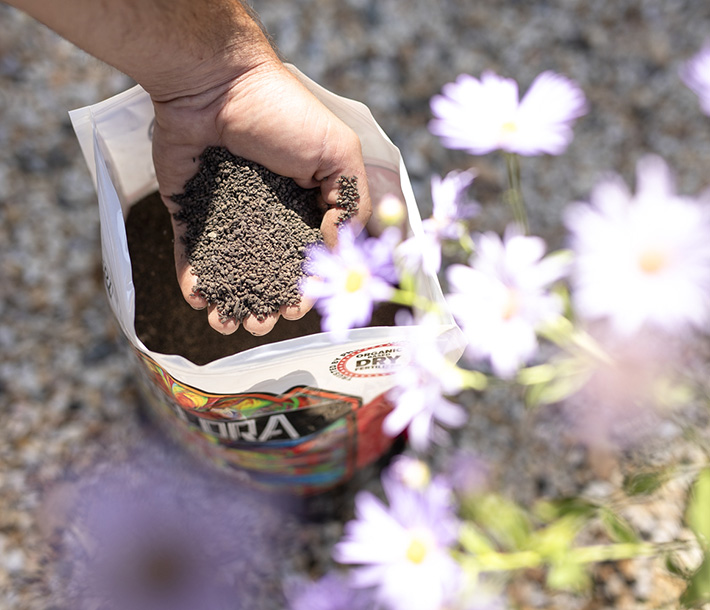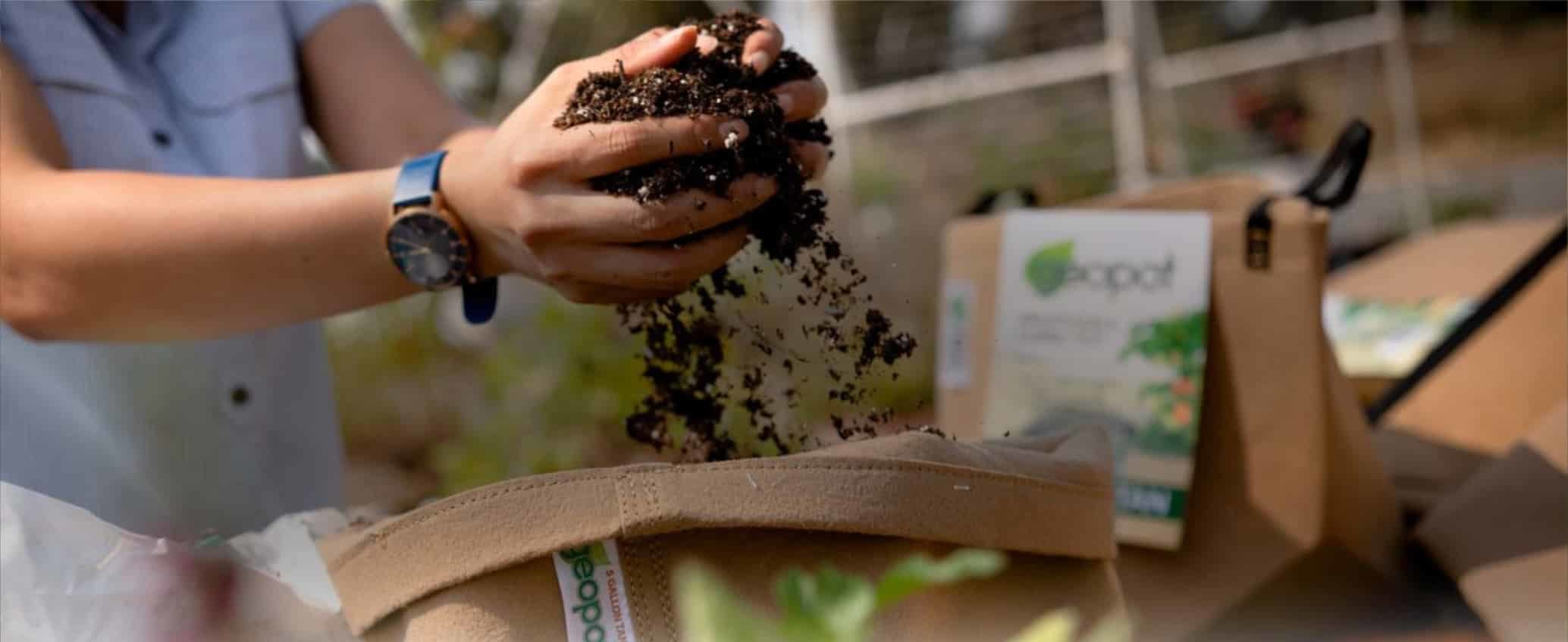Growers engaging in synthetic or organic gardening have preferences for what type of fertilizer they use. Before choosing, consider your grow style, where you intend to keep your plants, and the types of plants you’ll cultivate.
We recommend doing a soil test and looking at the fertilizer guidelines for your plants and vegetables to make a more informed decision.
Here are some things to consider when deciding between organic versus synthetic fertilizers:
Synthetic fertilizer provides an immediate boost of nutrients to the plant, but can easily burn the roots of garden vegetables or vegetable crops if not applied properly. Because conventional fertilizer is typically a liquid, nutrients that are not immediately taken up by the plant can runoff from the garden with regular watering and contaminate waterways. Synthetic fertilizers also lack critical micronutrients that support microbiological life and plant function.
By contrast, organic fertilizers are derived from organic matter such as bone meal, fish emulsion, animal manure, worm castings, blood meal, and other natural materials. These amendments are slow-release fertilizers because the ingredients take time to break down and become usable to the plants. Such fertilizers promote vigorous root growth and healthy stem and stalk development while feeding soil microbes that aid in the breakdown process.

Overall, organic fertilizer is better for urban gardeners and ensures plants develop along their natural cycles. Using this type of fertilizer allows you to grow healthy plants like fruit trees, leafy greens, and flowers, while lowering your environmental impact and the potential for nutrient burn.

 Overall, organic fertilizer is better for urban gardeners and ensures plants develop along their natural cycles. Using this type of fertilizer allows you to grow healthy plants like fruit trees, leafy greens, and flowers, while lowering your environmental impact and the potential for nutrient burn.
Overall, organic fertilizer is better for urban gardeners and ensures plants develop along their natural cycles. Using this type of fertilizer allows you to grow healthy plants like fruit trees, leafy greens, and flowers, while lowering your environmental impact and the potential for nutrient burn.